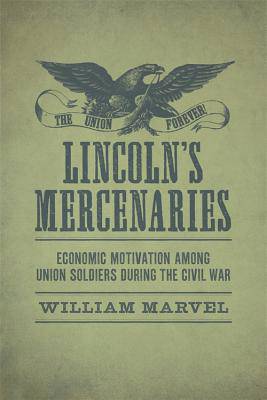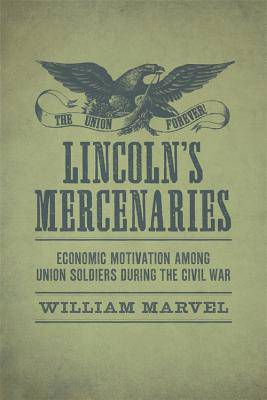
- Retrait gratuit dans votre magasin Club
- 7.000.000 titres dans notre catalogue
- Payer en toute sécurité
- Toujours un magasin près de chez vous
- Retrait gratuit dans votre magasin Club
- 7.000.0000 titres dans notre catalogue
- Payer en toute sécurité
- Toujours un magasin près de chez vous
76,45 €
+ 152 points
Description
In Lincoln's Mercenaries, renowned Civil War historian William Marvel considers whether poor northern men bore the highest burden of military service during the American Civil War. Examining data on median family wealth from the 1860 United States Census, Marvel reveals the economic conditions of the earliest volunteers from each northern state during the seven major recruitment and conscription periods of the war. The results consistently support the conclusion that the majority of these soldiers came from the poorer half of their respective states' population, especially during the first year of fighting.
Marvel further suggests that the largely forgotten economic depression of 1860 and 1861 contributed in part to the disproportionate participation in the war of men from chronically impoverished occupations. During this fiscal downturn, thousands lost their jobs, leaving them susceptible to the modest emoluments of military pay and community support for soldiers' families. From newspaper accounts and individual contemporary testimony, he concludes that these early recruits--whom historians have generally regarded as the most patriotic of Lincoln's soldiers--were motivated just as much by money as those who enlisted later for exorbitant bounties, and that those generous bounties were made necessary partly because war production and labor shortages improved economic conditions on the home front. A fascinating, comprehensive study, Lincoln's Mercenaries illustrates how an array of social and economic factors drove poor northern men to rely on military wages to support themselves and their families during the war.Spécifications
Parties prenantes
- Auteur(s) :
- Editeur:
Contenu
- Nombre de pages :
- 352
- Langue:
- Anglais
- Collection :
Caractéristiques
- EAN:
- 9780807169520
- Date de parution :
- 06-11-18
- Format:
- Livre relié
- Format numérique:
- Genaaid
- Dimensions :
- 199 mm x 242 mm
- Poids :
- 598 g

Les avis
Nous publions uniquement les avis qui respectent les conditions requises. Consultez nos conditions pour les avis.






